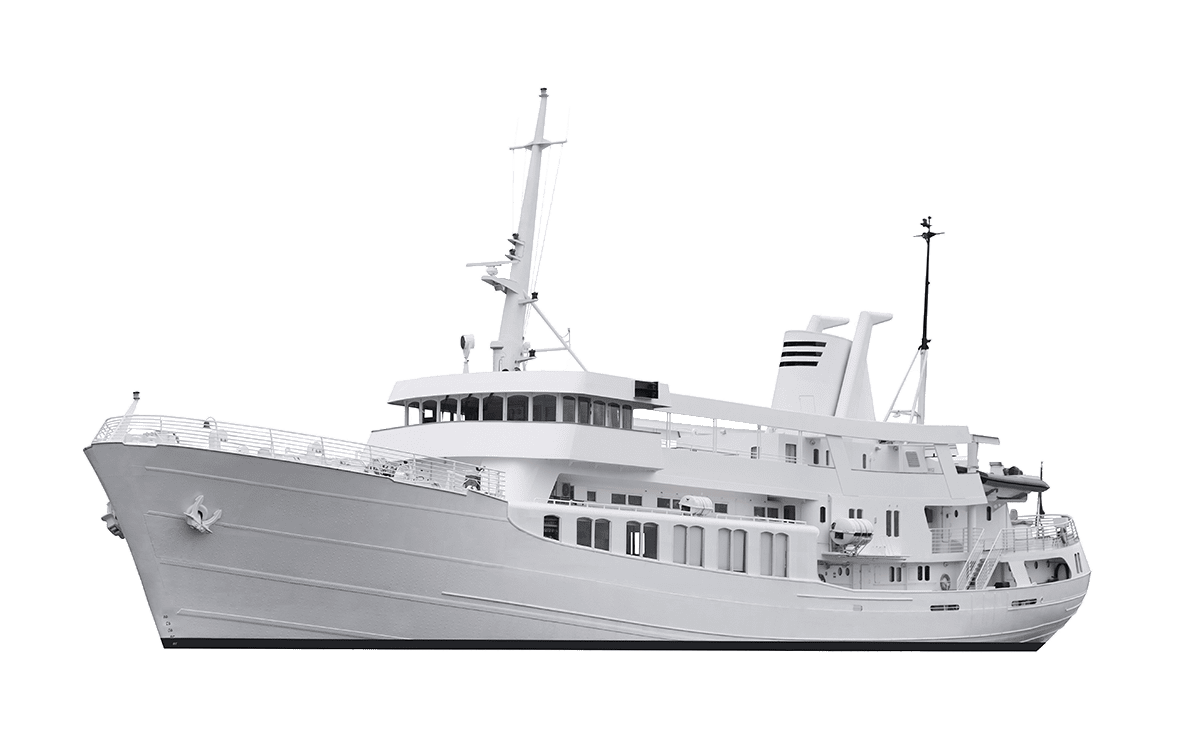Maritime Law
It’s all we do

What’s Maritime Law?
Maritime law, or admiralty law, is the set of rules and laws that deal with the activities and disputes on the world’s navigable waters. It applies to shipping, commerce, navigation, contracts, torts, injuries, crimes, salvage, piracy, and environmental issues related to maritime activities.

Maritime law is regulated by different organizations at the international, national, and state levels. Some of the main sources of maritime law are:
International conventions and treaties
These are agreements among countries that set common rules and standards for maritime matters. For example, the United Nations Convention on the Law of the Sea (UNCLOS) defines the rights and obligations of countries in relation to the oceans.
Federal statutes and regulations
These are laws and rules made by the U.S. Federal government that apply to maritime matters in the U.S. jurisdiction. For example, the Jones Act regulates the transportation of goods and passengers between U.S. ports by U.S.-flagged vessels.
State statutes and regulations
These are laws and rules made by the state governments that apply to maritime matters in the state boundaries. For example, Florida has state laws on boating safety, fishing, water pollution and coastal management. Other examples are state laws on boating safety, fishing, water pollution, and coastal management.
Common law and equity
These are principles and doctrines from judicial decisions that apply to maritime matters when there is no statute or treaty.
Regulations covering maritime law may sometimes conflict or overlap with each other, creating complex legal issues that require expert advice. At Davant Law, maritime law is all we do; we can assist you in reviewing the applicable law or laws in your maritime defense case.

The Davant Law Expertise in Maritime Legal Defense
We’ve handled a variety of notable legal cases covered by maritime law in Florida, elsewhere in the United States, and internationally. The cases most commonly involved:
- Maritime accidents: Accidents that occurred at sea or on navigable waters.
- Salvage operations: Legal disputes surrounding the salvage and recovery of vessels and their cargo.
- Maritime contracts: Disputes over the formation, interpretation, and enforcement of contracts within the maritime industry.
- Marine insurance disputes: These involved disagreements over the extent and type of insurance coverage.
Marine Insurance
Marine insurance coverage can vary depending on the type of policy, the type of vessel, and the type of activity involved. However, some of the common types of marine insurance coverage are:
- Hull and machinery insurance: Covers physical damage or loss of the ship or vessel, its engines, equipment, and fittings.
- Cargo insurance: Protects against loss or damage to cargo during transportation.
- Protection and indemnity (P&I) insurance: Protects the legal liability of the shipowner or operator for bodily injury or property damage to third parties that arise from the operation or use of the vessel.
- Marine general liability insurance: covers the general liability exposures of businesses engaged in marine-related operations, such as ship repairers, terminal operators, marina operators, charterers, and marine contractors.
- Freight insurance: This type of coverage protects the loss of income or profit that results from the non-delivery or delay of the cargo due to an insured peril.
Marine Insurance in Maritime Law
Maritime law governs marine insurance, such as each party’s rights and duties, coverage scope and extent, dispute resolution and more. Maritime law also shapes marine insurance policies, contracts, and clauses. Thus, marine insurance and maritime law are complementary and interdependent.
Framework and Enforcement of Maritime Law
Dispute Resolution in Maritime Law
Maritime disputes are different from other kinds of disputes because they involve special laws and practices that only apply to the water; as such, they require specialized knowledge of maritime regulations and practices. Resolution mechanisms specific to maritime law have been created; these are considered fair and efficient means to settle these types of conflicts — often without having to go to court.
Tailored Mechanisms for Resolving Maritime Disputes
- Arbitration: Arbitration offers flexibility and confidentiality and is a popular choice for resolving maritime disputes. Parties involved can nominate arbitrators with expertise in maritime law, ensuring a fair assessment of the case.
- Mediation: Mediation offers a non-adversarial approach to resolving conflicts. It involves a neutral mediator assisting the parties in reaching a mutually acceptable solution. Mediation can help avoid lengthy court battles and maintain business relationships.
- Litigation: When all other avenues fail, litigation becomes necessary. Maritime litigation occurs in specialized admiralty courts equipped to handle complex maritime cases. Judges and attorneys in these courts possess specialized knowledge and experience in maritime law.
Jurisdiction in Maritime Law
- The Jurisdiction of U.S. Courts in Maritime Cases – U.S. courts are often called to resolve maritime disputes due to the country’s vast coastline and active maritime industry. These courts have jurisdiction over cases involving U.S. flagged vessels, U.S. citizens, or incidents occurring within U.S. territorial waters.
- Jurisdictional Issues in International Waters – Maritime disputes that occur in international waters make it complicated to establish jurisdiction, especially in the absence of a specific governing authority.
- Maritime Legislation in the United States – The United States has established comprehensive maritime legislation to govern various aspects of maritime activities. These laws ensure compliance with international conventions and address domestic maritime concerns.
Maritime Law on Nautical Activities
Maritime law has a significant impact on nautical activities, influencing how ship operations are conducted and ensuring safety and security measures are in place. Let’s look at these effects:

Nautical Operations and Compliance with Maritime Law
Regulatory requirements imposed by maritime law influence the day-to-day operations of ships. These rules are important to keep the crew members safe, protect the environment, and maintain the integrity of maritime trade.

Safety and Security Measures for Vessels
Maritime law mandates safety and security measures to make vessels safer and more secure. These measures include maintaining proper navigation equipment, ensuring crew training and certification, and implementing effective security protocols to prevent unauthorized activities.
Let Us Guide Your Maritime Law Case to Safe Harbor
Review our Case Studies and track record in Maritime Law.
